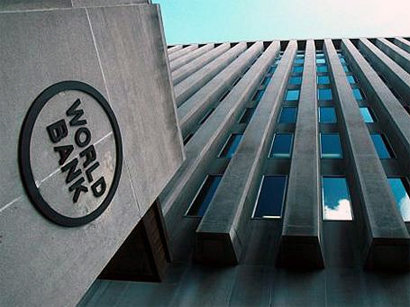Turkmenistan enters into category of upper middle income countries: WB

By Gunay Hasanova
Turkmenistan's economy, despite the turbulence and uncertainty of the global environment, demonstrated significant growth over the years, thus helping the country enter into the category of upper-middle income countries.
This was stated in a letter of the Vice-President of the Work Bank’s Europe and Central Asia region Cyril Muller to the President of Turkmenistan Gurbanguly Berdimuhamedov.
"Let me take this opportunity to reaffirm the commitment of the World Bank Group (WBG) to support the transition of your country into the ranks of countries with high income level, modern and diversified economy," says the message.
Turkmenistan's policy of permanent neutrality is a valuable guiding principle for achieving socio-economic growth and improving the welfare of citizens, according to the representative of the World Bank.
Being ranked 4th in terms of natural gas reserves, the country is one of the world’s fastest-growing economies.
Turkmenistan has acceded to the World Bank Group (WBG) in September 1992.
On October 2016 Turkmenistan's Ministry of Finance and the World Bank signed an agreement to provide paid consulting services in the financial sector and in the field of macroeconomics.
This will encourage business model reform and corporate governance in the banking sector as well as the development of a credit report system, among other measures.
The June report of Global Economic Prospects World Bank said that the growth of gross domestic product (GDP) of Turkmenistan in the next three years (2016-2018) is projected at 5 percent.
Turkmenistan plays the role of one of the key players in the energy market of the Caspian region. The country annually produces about 70-80 billion cubic meters of gas. For a long time the raw material was exported to Iran, however, in 2009, a route to China was opened.
This year Russia refused to purchase Turkmen gas. The print reflected both the decline in global energy prices and Russia’s decision to stop purchasing Turkmen gas—the country’s main commodity export. Agriculture, trade, and transport and communication were the sectors that registered the largest gains in the January-September period.
In January 2015, Turkmenistan manat depreciated. As a result, investment spending and subsidies were reduced, while regulation and supervision of the banking were strengthened.
Despite fiscal consolidation after revenues from oil and natural gas exports plunged because of lower global energy prices, Turkmenistan’s gross domestic product grew by 6.1 percent in the first half of 2016, albeit more slowly than the 9.1 percent recorded in the first half of 2015.
The government continued to support the private sector, encouraging import-substitution and export-promotion outside the hydrocarbon economy, where most of the growth occurred. Expansion was greatest in services, which grew by 12.3 percent, reflecting gains of 9.9 percent in transport and 16.0% in trade. Agriculture grew by 6.9 percent and industry by 2.1 percent, with construction rising by 4.4 percent. On the demand side, fiscal consolidation prompted by the decline in revenue from oil and gas exports led the government to trim some public investment programs. Investment nevertheless grew by 5.7 percent in the period.
---
Gunay Hasanova is AzerNews’ staff journalist, follow her on Twitter: @gunhasanova
Follow us on Twitter @AzerNewsAz
Here we are to serve you with news right now. It does not cost much, but worth your attention.
Choose to support open, independent, quality journalism and subscribe on a monthly basis.
By subscribing to our online newspaper, you can have full digital access to all news, analysis, and much more.
You can also follow AzerNEWS on Twitter @AzerNewsAz or Facebook @AzerNewsNewspaper
Thank you!
